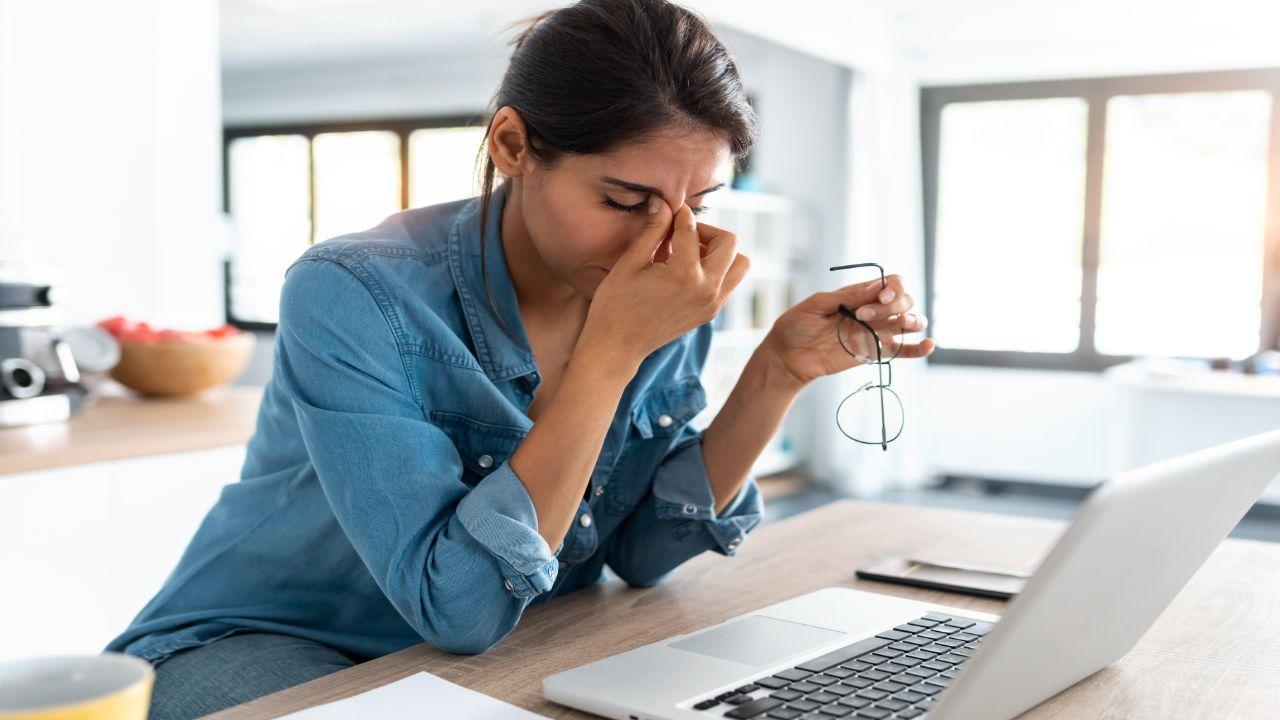As the city witnesses its second Covid wave, Mumbaikars’ resilience is being tested and many are struggling to keep up with the ‘new normal’. Here’s what the experts think we should do to stay safe and keep panic at bay

The photo is for representational purpose only
It was January 2020. Everyone welcomed the year like the previous times, with hope and resolutions. However, it the year did not exactly pan out the way people had expected. By March-end, we were all in for a rude shock. The Covid-19 pandemic brought panic, anxiety and uncertainty. No one was prepared for the scale of the thing.
During that time, there were a lot of webinars and online sessions revolving around mental health. Even on social media, everyone was talking about being kind and being in regular touch with friends and loved ones – even if it was virtually. Now, it’s been a year since the first lockdown was announced in India. Things might be opening up, but the situation is far from normal. The lockdown’s impact on mental health remains.
ADVERTISEMENT
Lockdown and mental health
According to The Lancet Psychiatry, in 2017, around one in seven Indians had mental disorders of varying severity, which has almost doubled since 1990. According to a report in The Times of India, the Indian Psychiatric Society (IPS) has said that there’s been a 5 per cent increase in the number of patients with mental illnesses since the pandemic began.
City-based psychiatrist Dr Chinmay Kulkarni explains: “One of the important aspects of the lockdown was that for the first time in history, a large population was forced to get isolated. Humans are social animals. Throughout the evolutionary history of humans, socialisation was a norm and isolation was the exception. The lockdown was an unprecedented experience for humankind as far as mental health is concerned.”
Dr Chinmay Kulkarni
Salma Prabhu, who is a clinical psychologist in Mumbai, feels that children, teenagers and senior citizens were affected most. “The working group also has their own set of issues, but teenagers locked inside the house, unable to meet their friends physically, gave rise to many issues – such as anxiety, irritation and frustration, and arguments with parents,” she says.
Salma Prabhu/Pic: Shashi Patil
Dr Sapna Bangar, psychiatrist and head of Mpower, feels that all age groups were affected equally, and anxiety, depression, stress, addictions and sleep issues were some of the common concerns. According to Dr Kulkarni, the lockdown period also saw a lot of unresolved conflicts resurface among family members, as they were together all the time. “Work-home boundaries disappeared, the workload increased, screen time increased, which in turn affected many people in the form of fatigue, irritability, sleep disturbances, frequent body aches and muscles soreness. Anxiety about getting infected with the coronavirus also was high among many people. Many of them, especially healthcare workers and frontline workers, were also anxious about the possibility of passing on the infection to their family members,” she says.
Virtual counselling
To be careful, a lot of therapists and mental health experts started online and telephone sessions during the lockdown. According to a July 2020 study reported by IANS, more than 60,000 people were counselled about mental issues connected to the coronavirus pandemic and lockdowns, through the tele therapy helpline set up by the National Institute of Mental Health and Neuro-Sciences (NIMHANS).
Dr Kulkarni thinks a lot of patients find it easier to have an online consultation because it saves a lot of travel and waiting time in clinics and hospitals. “Earlier, caregivers as well as patients had a lot of resistance due to which they didn't even try online consultations. Now, most people have tried it and many of them are comfortable with it. So I think online consultations are going to stay,” he says.
But Dr Bangar believes that even though many pre-conceived notions changed – like counselling went virtual and psychiatrists are now allowed to issue online prescriptions – the medium has its pros and cons. “For example, picking up non-verbal cues during a virtual consult is more difficult than in an offline meeting, or it’s easy to get distracted during an online consult. In addition, there are many who struggle to find the privacy and space to have counselling online,” she says.
Dr Sapna Bangar
However, both Dr Kulkarni and Dr Bangar agree that with virtual counselling here to stay, many more people are open to it.
Coping skills
Restrictions might have been eased and people have started stepping out of their homes and going to work outside, but Mumbai is in the midst of its second Covid wave, having breached almost 3,000 daily positive cases. While the vaccine rollout might have given hope to people, there’s still a long way to go. Wearing masks and maintaining social distancing will still have to be continued. Even after taking precautions, the prospect of contracting the virus seems worry people. What advice would experts give to those who are struggling to keep up with the ‘new normal’?
Prabhu says: “My advice would be to not panic, but take precautions; not get paranoid, but follow the protocols. Statistics show that wearing masks has really helped in containing the spread, so I would say that though at times it is uncomfortable, one needs to wear a mask when outside or in crowded spaces.”
Dr Bangar’s advice is to take one day at a time, stay connected with friends and family, and practise mindfulness and gratitude journaling. “Think of everything you have achieved in the past year - most of the things were unimaginable, but believe in yourself. Spend at least 10-15 minutes a day doing things you enjoy, which will act as stress-busters. Eat healthy and sleep adequately,” she says.
 Subscribe today by clicking the link and stay updated with the latest news!" Click here!
Subscribe today by clicking the link and stay updated with the latest news!" Click here!






